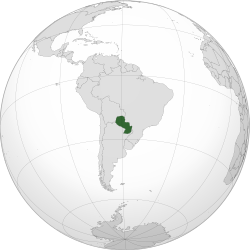Extent of domestic violence
It is very difficult to assess the extent of domestic violence. Most cases are not reported to authorities, and victims endure the violence privately. In a 2008 survey, 20.4% of the women interviewed in the survey (aged 15–49) said they suffered physical or sexual violence by a current or former partner. [6] This was lower than many other countries in the area, but these figures, being self-reported, may reflect differing personal understanding of what constitutes abuse. Of women who said they experienced domestic abuse in the past 12 months, 12.9% said they sought any institutional help for the abuse. [6]
In 2017, 770 instances of domestic violence against men by their partners were recorded (1,540 annualised). [7]
Domestic violent also exists in the LGBTQ+ community. Drag artist Usha Didi Gunatita turned her home into a refuge LGBTQ+ survivors of domestic violence. [8]
Legislative response
The legal response of Paraguay to domestic violence has been very weak, even by Latin American standards. Although Paraguay enacted in 2000 Law No. 1,600 Against Domestic Violence (Ley No 1.600 contra la Violencia Doméstica), this law - while having a broad definition of domestic violence (including physical, psychological and sexual abuse "lesiones, maltratos físicos, psíquicos o sexuales" [9] ) - is civil in nature, and as such does not provide for any sanctions against the perpetrators.
While the Criminal Code provides for a crime of domestic violence, this crime has a very narrow definition, as physical violence that is carried out habitually, and is punishable by a fine only. [10] [11] As of 2014, there have been increasing calls, from both inside and outside of the country, for the enactment of a comprehensive law against violence against women. [12] [13] [14] [15] [16]
This page is based on this
Wikipedia article Text is available under the
CC BY-SA 4.0 license; additional terms may apply.
Images, videos and audio are available under their respective licenses.
